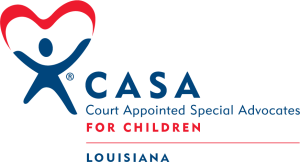Calendar

Thank you so much for your interest in our camp! We’ll be in touch by June 14 to let you know whether we are able to offer a spot to your camper! If you don’t receive an email from us, please don’t hesitate to contact us at tmerrick@fhfnola.org (unfortunately, our emails sometimes go to spam). The camp cost is $250 per week. A two-week-long summer camp from 10 a.m. to 3 p.m. and we focus on disability justice, celebrating neurodiversity, and simply encouraging everyone to explore and have fun in a safe, supportive environment! We welcome all applications. This 10-day camp is designed for neurodiverse individuals to have an opportunity to explore coding with Texas Instruments Technology. Activities include daily competitions involving games, robotic vehicles, microcontrollers, calculators, and PYTHON programming. We aim to create a low-pressure, sensory-friendly environment that supports all types of communication.

Join other child-serving professionals to create a plan of action for preventing child sexual abuse of youth in your care.
Learn the signs and symptoms of child sexual abuse, mandated reporter and stakeholder responsibilities. Identify strengths and weaknesses of current prevention practices, and develop an action plan, using the Strategic Prevention Dashboard, for your organization.
This course is open to all members of child serving organizations such as preschool, after-school care, summer camps, church groups, athletic associations or others responsible for the care of minors.
Upon completion of this training, you will be able to:
- Identify signs and symptoms of child sexual abuse
- Identify community stakeholders and define their roles in preventing child sexual abuse
- Define Mandated Reporter and their legal and ethical responsibilities
- Identify strengths and weaknesses of stakeholder current prevention practices
- Create an action plan to improve the prevention of child sexual abuse within your organization/agency (internally) and throughout your community (externally)

In this webinar, presenters will discuss the critical multidisciplinary needs of children who have been prenatally exposed to a substance and their families and articulate ways in which current policies, initiatives, and workforce development can be leveraged through multi-system collaboration to enhance care and outcomes. Drawing from state approaches to implement the plans of safe care requirement of CAPTA legislation, the presenters will discuss the need for additional implementation support and federal technical assistance, multi-system collaboration, and equitable supports to improve outcomes.
FTCs, like all drug courts, historically focused on treating substance use disorders (SUDs). However, FTCs cannot maintain this singular focus since 45% of adults with an SUD in the general population also live with a co-occurring mental health disorder. People with an untreated co-occurring disorder are less likely to complete substance use treatment or achieve sustained recovery; they are also more likely to experience unemployment, homelessness, child welfare involvement, incarceration, and suicide. Many dependency court professionals recognize the prevalence of co-occurring disorders. Still, due to complexities in screening, assessment, diagnosis, and securing mental health services, FTCs may not appropriately identify and treat parents with co-occurring disorders. This Practice Academy examines the interactive nature of substance use and mental health disorders, while providing strategies for improved approaches and outcomes for parents and their children.
Learning Objectives:
- Summarize definitions and prevalence rates of co-occurring disorders and explore theories of how and why substance use and mental health disorders co-occur.
- Identify complexities and opportunities in screening and assessment to more accurately identify parents with co-occurring disorders.
- Apply evidence-based approaches for integrated treatment and recovery.
- Adopt strategies from FTCs who successfully serve parents with co-occurring disorders.

Promoting Positive Change in Communities by Confronting Poverty
Louisiana CASA is excited to host our third webinar series. This series is brought to you in partnership with the Louisiana Children’s Trust Fund so we are required to ask participants certain demographic questions during registration. Once you register, an email will be sent to you that includes the link to join the webinar. We hope to see you there!
Poverty’s Impact on the Brain
Poverty isn’t just about financial scarcity; it profoundly shapes the way children’s brains develop. Growing up in disadvantaged environments can affect the brain cognition, structure, and overall well-being. The presentation will delve into research that reveals the short and long-term affects poverty and explore the brain’s remarkable capacity for change. Join us as we bridge neuroscience and social justice, equipping participants with knowledge to create positive outcomes for vulnerable populations.

Promoting Positive Change in Communities by Confronting Poverty
Louisiana CASA is excited to host our third webinar series. This series is brought to you in partnership with the Louisiana Children’s Trust Fund so we are required to ask participants certain demographic questions during registration. Once you register, an email will be sent to you that includes the link to join the webinar. We hope to see you there!
Youth Trauma and Resilience in Poverty
There are unique challenges faced by young individuals growing up in impoverished environments. From exposure to violence to systemic inequalities, this presentation will examine how poverty shapes their experiences and how, despite adversity, many youth demonstrate remarkable resilience. Our presenters will explore protective factors, coping strategies, and community support that contribute to their ability to thrive.

Promoting Positive Change in Communities by Confronting Poverty
Louisiana CASA is excited to host our third webinar series. This series is brought to you in partnership with the Louisiana Children’s Trust Fund so we are required to ask participants certain demographic questions during registration. Once you register, an email will be sent to you that includes the link to join the webinar. We hope to see you there!
Child Academic Resilience to Poverty
Child poverty is a global issue, affecting millions of children worldwide. Children in poverty face unique challenges, but with targeted strategies, we can help them develop the resilience needed to thrive academically. Recognizing signs of distress, providing targeted support, and creating safe spaces where children feel valued and respected build in their ability to achieve academic success despite some family dynamics. Join us as we empower children to break free from generational poverty.

Promoting Positive Change in Communities by Confronting Poverty
Louisiana CASA is excited to host our third webinar series. This series is brought to you in partnership with the Louisiana Children’s Trust Fund so we are required to ask participants certain demographic questions during registration. Once you register, an email will be sent to you that includes the link to join the webinar. We hope to see you there!
Building Community Engagement
Child poverty remains a critical challenge, affecting families across the nation. To create lasting change, we must come together as a community. Join us as we explore strategies, resources, and collaborative approaches that empower families living in poverty. Together, we can build resilience and foster well-being for children and their caregivers.
